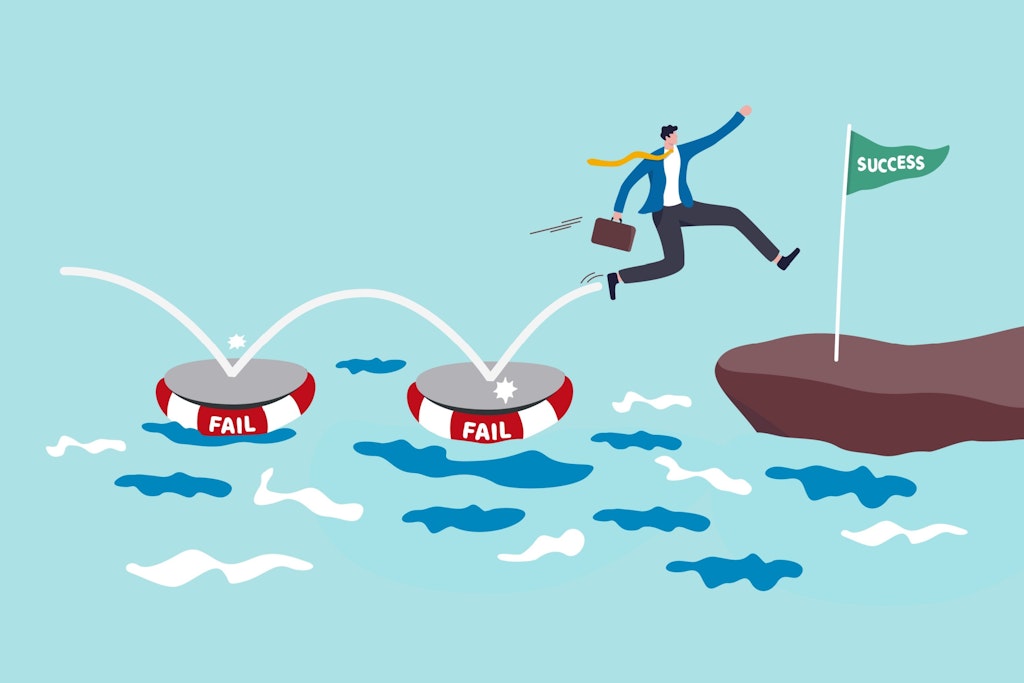Six beneficial ways to learn from failure
Last updated on 21 July 2023

Failure. It’s a word no one wants to hear. To fail is to make a mistake, to be unsuccessful. Yet we all make mistakes and there will be moments of failure in our personal and professional lives. The ability to learn from failure and come out the other side stronger than ever is something that can make or break a leader.
Here’s how you can learn from moments of failure.
Recognise what went wrong
It’s impossible to learn from your mistakes without recognising what went wrong in the first place. And by taking the time to reflect on any missteps or disappointing outcomes, you will be better prepared next time.
Finding the cause of failure can be challenging, too; there could be a number of reasons for failure, particularly in a team environment or when shared responsibility is involved. Common reasons for failure include:
- Deviation from normal procedures/processes
- Lack of ability or knowledge relevant to the specific task
- Inattention to detail
- Unrealistic expectations/unachievable outcomes
- An experimental approach to a task
- A lack of dedicated resources and investment
- Miscommunication between individuals
Understand how to improve next time
When you know what’s gone wrong, it’s time to fix it. You must use failure as a tool to build future success, putting a positive spin on the experience rather than a negative one.
For example, a review of your latest marketing campaign reveals the strengths and weaknesses of ad placement, ad type and target audience. Rather than seeing the lower-performing ads as a failure, you better understand how to maximise the impact of top-performing ads.
That means you can plan ahead for the next campaign, identify what the right path is, and focus on implementing improvements. By giving yourself the time and scope to strengthen processes you will reduce the potential for future failure.
Develop greater resiliency
Failure can be a heavy blow for some no matter how experienced. But by framing failure in a positive light and acknowledging it happens to everyone, you can become more resilient. It helps to view failure as a speed bump; yes, it slows you down, but it doesn’t bring the journey to a halt.
That’s why recognising your own faults and understanding how to improve them will help you move forward quickly. Of course, this can take time. It will sting when receiving negative feedback or acknowledging you didn’t achieve an important goal. But resilience and confidence do grow and it’s essential to maintain your own sense of self-belief no matter what.
Take responsibility for your actions
There will always be individuals who shift the blame when something goes wrong. A good leader knows they cannot do that; you are accountable for those working under you. Yet it’s still challenging to own up to failure at all times.
But guess what? It takes confidence and strength to take responsibility and accept the blame. And if you can clearly see where mistakes were made it’s even easier to speak up and say “This is what went wrong and this is how I plan to do it differently next time”. Responsibility and accountability will help you grow into a wiser leader, particularly one who welcomes failure as an opportunity to learn.
Accept experimentation and failure
One of the best ways to learn from failure is by encouraging it in safe environments. If you have the capacity to take on experimentation in the workplace, do it. Through trial and error, you will learn what works and what does not based on your current workforce and resource capabilities.
Sometimes you have to throw a spanner into the works, too; when trialling something, giving yourself the best possible conditions will only show how well something works in the best-case scenario. It helps to know what doesn’t work, and why, so you can create plans to overcome likely real-world challenges.
Share your experience with others
It’s one thing to fail on your own, but it’s another to sit back and watch others around you do the same. Sharing your experience brings out the best in everyone. So speak up and support your colleagues and your staff, pass on advice and lend a helping hand. This should lead to positive karma, too, as people are more likely to return the favour when they also learn from their mistakes.